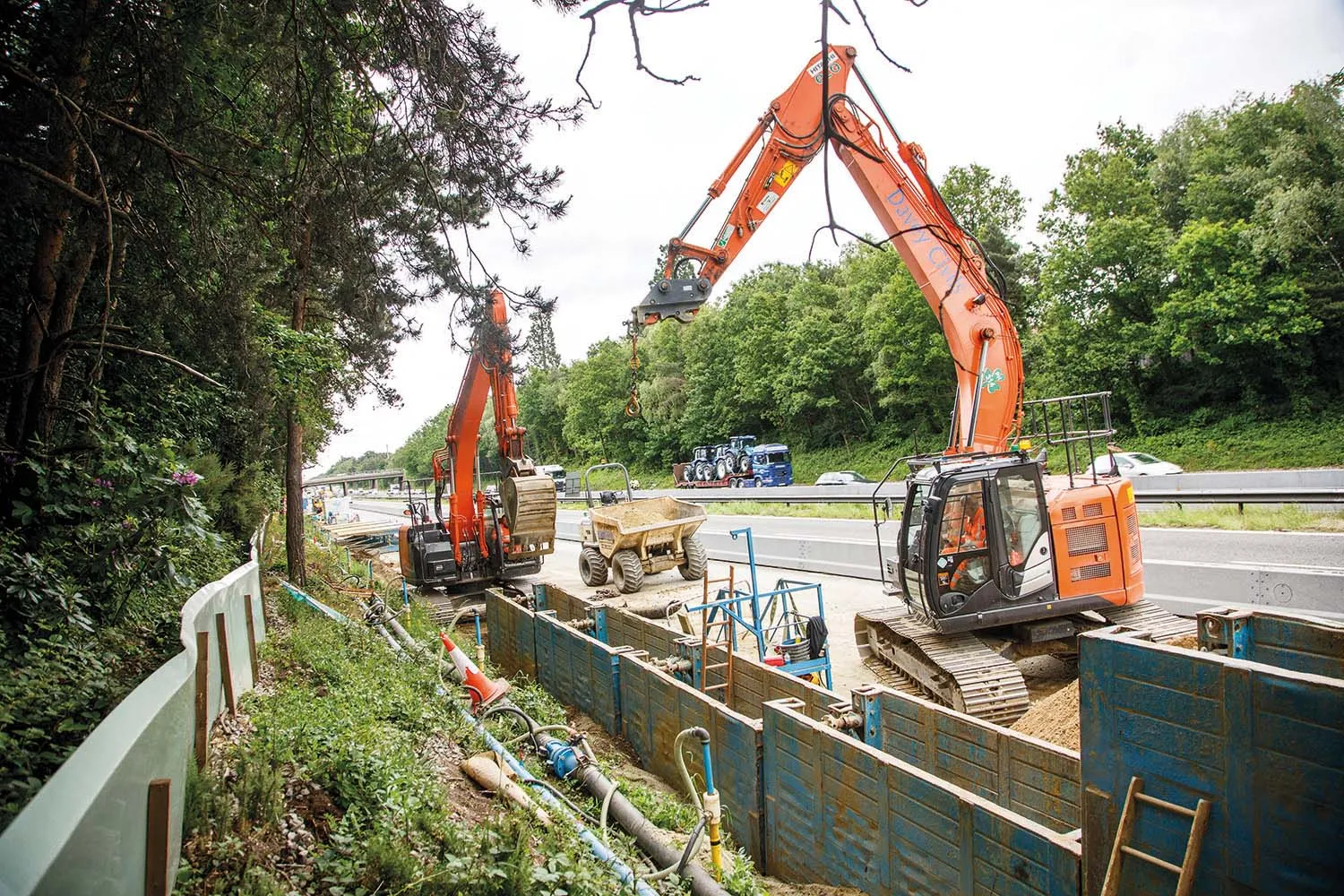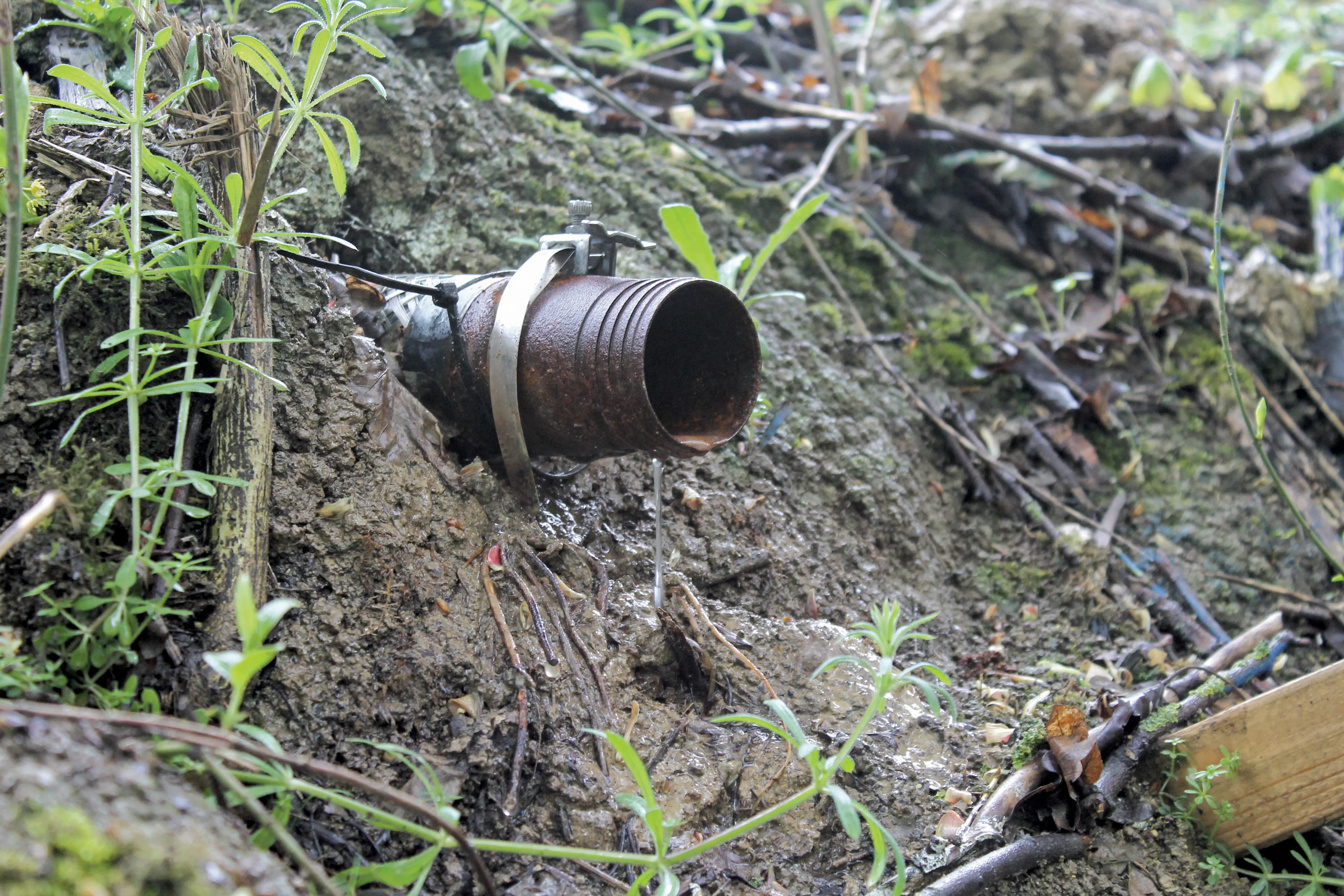A fleet of Hitachi short-tailswing excavators have been working on the M3 smart motorway project in the counties of Hampshire and Surrey in England. Eight ZX135US-5 and ZX225USLC-5 excavators owned by Skyland Drainage Contractors, and a further two ZX225USLC-5s owned by Davey Civils, have been employed on the subcontractors’ drainage works.
Having previously hired Zaxis excavators, Kent-based Davey Civils has been a Hitachi customer for one year. Both models were supplied with service contracts from Hita
December 14, 2015
Read time: 2 mins

A fleet of 233 Hitachi short-tailswing excavators have been working on the M3 smart motorway project in the counties of Hampshire and Surrey in England. Eight ZX135US-5 and ZX225USLC-5 excavators owned by Skyland Drainage Contractors, and a further two ZX225USLC-5s owned by Davey Civils, have been employed on the subcontractors’ drainage works.
Having previously hired Zaxis excavators, Kent-based Davey Civils has been a Hitachi customer for one year. Both models were supplied with service contracts from Hitachi Construction Machinery (UK) (HCMUK) when they were delivered in January 2015.
The machines have been working alongside live traffic on the project, with barriers to protect the working area from passing vehicles. Average speed camera technology has also been employed to ensure that drivers maintain a safe speed through the workzone.
An estimated 130,000 journeys are made on the M3 daily, which links south-west London to Southampton. The figure is set to increase by 30% over the coming years. The €180 million (£129 million) smart motorway scheme – awarded to international infrastructure group1146 Balfour Beatty in July 2014 – will increase capacity, reduce congestion and shorten journey times by up to 15% between junctions 2 and 4a. Further benefits include smoother traffic flows, fewer road traffic collisions, and reduced noise and vehicle emissions.
Having previously hired Zaxis excavators, Kent-based Davey Civils has been a Hitachi customer for one year. Both models were supplied with service contracts from Hitachi Construction Machinery (UK) (HCMUK) when they were delivered in January 2015.
The machines have been working alongside live traffic on the project, with barriers to protect the working area from passing vehicles. Average speed camera technology has also been employed to ensure that drivers maintain a safe speed through the workzone.
An estimated 130,000 journeys are made on the M3 daily, which links south-west London to Southampton. The figure is set to increase by 30% over the coming years. The €180 million (£129 million) smart motorway scheme – awarded to international infrastructure group







